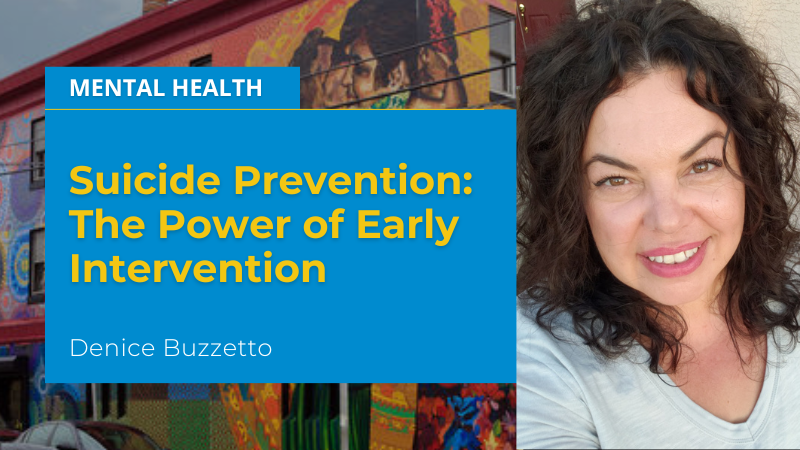Author: Hunter Robbins, Suicide Prevention Coordinator, Department of Behavioral Health and Intellectual disAbility Services (DBHIDS)
September is National Suicide Awareness and Prevention Month. This is a time to highlight the work being done to prevent suicide, spread awareness about helpful initiatives, and share resources within our communities. It is also a time to remember the importance of those with lived experience.
Lived experience as it pertains to suicide usually means one of two things: either you have lost someone to suicide (a survivor of suicide), or you have attempted suicide yourself and survived. Unfortunately, when we talk about suicide, those with lived experience are often left out of the conversation. Being a survivor of any traumatic experience is not easy. In 2018, there were 48,433 Americans who died by suicide, and a staggering 1.4 million who attempted suicide, according to the American Foundation for Suicide Prevention. To add to that, studies show that for every death by suicide, there are up to 135 people who can be affected by it. This means that in 2018, up to 8 million people could be considered to have lived experience.
Why is it important to highlight lived experience? Studies show that after an individual dies by suicide, there could be a significant increase of suicide risk for close friends and family. There is also evidence that shows individuals with at least one prior suicide attempt have a higher risk of attempting again than the general population. Those with lived experience not only have to carry the weight of their loss or previous attempt, but also have higher risk of dying by suicide themselves. If you know of someone who would qualify as having lived experience, I urge you to check in with them. Please listen without judgement and provide a safe space for them to share things that they wouldn’t typically share. Providing connection can lower suicide risk.
Those with lived experience have valuable voices that should be informing how we provide suicide care. Individuals who have attempted suicide and those who have lost a loved one know the behavioral health system better than most. They know the good and the bad. Their lived experience provides invaluable insight. Survivors should be offered places for them to inform the system and show what it means to care for someone struggling with thoughts of suicide. As behavioral health care providers and administrators, we should listen when they tell us what they need rather than force a solution that we think is best. Suicide care is a two-way street.
Talking about suicide loss or one’s own attempt is not easy, but it is necessary to change the stigmatizing culture that still exists. We must start to share our stories of recovery and connecting with those who have similar experiences. This will create safer communities. Communities where those with lived experience do not have to be fearful of how people will react to their stories, but instead be welcomed by resources and support. Suicide may be national public health crisis, but that does not have to be the case in Philadelphia. Please click here to read a lived experience story.
If you have lost a loved one to suicide, consider joining one of the Suicide Loss Support Groups.
If you or a loved one is thinking about suicide, please do not hesitate to call the National Suicide Lifeline (1-800-273-8255) or text the Crisis Text Line (741-741). If you are within Philadelphia County and require crisis assistance, please call the Philadelphia Crisis Line (215-286-4420) or go to your nearest Crisis Response Center.



